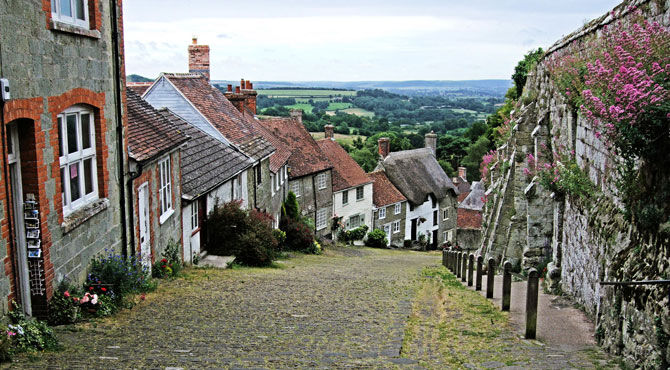UK house prices fall for the first time since summer - Halifax

Gold Hill In Shaftsbury - Dorset, photo copyright Jim Linwood https://creativecommons.org/licenses/by/2.0/
Shortages fuel house price growth
Martin Ellis, head of housing economics at Lloyds Banking Group, of which the Halifax is part, said: "The quarterly and annual rates of house price growth remain robust even though they are lower than in spring 2016. UK house prices continue to be supported by an ongoing shortage of property for sale, low levels of house-building, and exceptionally low interest rates."These factors are unlikely to change materially during 2017. Nonetheless, weaker economic growth and increasing pressure on spending power, along with affordability constraints, are expected to dampen housing demand, resulting in some downward pressure on annual house price growth during the year."Financial analysis firm IHS Global Insight said the latest Halifax figures pointed to growth of three per cent this year – half the rate recorded by Halifax during 2016.Related articles:
- December produces surprise surge in house prices
- North-South house price gap ‘could narrow in 2017’
- UK housebuilding proving ‘key engine of growth’
Howard Archer, the chief UK economist at IHS, commented: “January’s correction in house prices reported by the Halifax fuels our belief that house price gains over 2017 will be no more than three per cent.“Weakening consumer fundamentals, likely mounting caution over making major spending decisions and elevated house price-to-earnings ratios, are likely to weigh down on house prices. However, a shortage of supply is likely to put a hard floor under prices.”
Brexit-effect: house price growth will moderate
Samuel Tombs, chief UK economist at Pantheon Macroeconomics, added: “While large month-to-month falls in the Halifax’s measure of house prices are common, price growth has fundamentally weakened since the referendum.“The boost to price growth from the Bank of England’s August interest rate cut is starting to wear off and there are signs growth will moderate further over the coming months.“With mortgage rates now at a floor and loan-to-income ratios nearing the financial policy committee’s limits, house prices will have to track growth in households’ incomes much more closely this year.”Jeremy Leaf, a London estate agent and a former residential chairman of the Royal Institution of Chartered Surveyors, said: "The figures show a broadly slowing market in response not just to seasonal but other factors, which we have also noticed in our offices. Worries about rising inflation and what this means for general living costs and interest rates, as well as stricter mortgage criteria and the focus on affordability, are having an impact on people's decision-making."Russell Quirk, founder of eMoov.co.uk, said: "January is always a lethargic month for UK property as a result of the Christmas break and so any fall in house prices at this time of year should be taken with a pinch of salt, rather than a handful of panic."Had any other market around the world been subject to such a sustained period of scaremongering and uncertainty amongst buyer and seller as the UK market has in the last year, I expect it would be a different story to the one we are seeing here."Access hundreds of global services and suppliers in our Online Directory Get access to our free Global Mobility Toolkit
Get access to our free Global Mobility Toolkit 
©2025 Re:locate magazine, published by Profile Locations, Spray Hill, Hastings Road, Lamberhurst, Kent TN3 8JB. All rights reserved. This publication (or any part thereof) may not be reproduced in any form without the prior written permission of Profile Locations. Profile Locations accepts no liability for the accuracy of the contents or any opinions expressed herein.









































